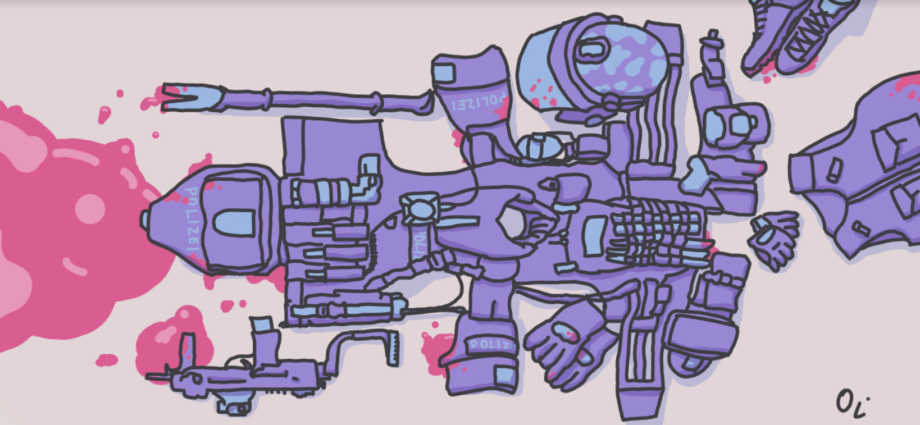By Aysu Arslaner
Whenever German officials are involved in scandals it tremendously impacts the political landscape and the public discourse. Those patterns became evident earlier this June when 17 staff members of the police tactical unit (Spezialeinsatzkommando) in Frankfurt am Main were found to be in right-wing extremist group chats. Currently, the state is investigating 20 officers in total. It is important to mention that three supervisors were aware of the situation but chose not to intervene. As a response to this underlying issue, the minister of domestic affairs in the Hessen province, Peter Beuth, decided to dissolve the unit. What does that mean for the German society as a whole?
Firstly, one should know what the police tactical unit, Spezialeinsatzkommando (SEK), is. The SEK is the police task force of Germany, and since Germany is a federal state, each province has its own police. As a result, the police of each state has at least one task force. Their main task is to counter terrorism and to liberate people who are held hostage. Often, they are responsible for detecting drug operations and other issues of a related nature. Having said this, one can conclude that in a holistic picture the current happenings are fatal for the German Democracy and especially for BPoCs. An institution which, in statutory terms, aims to defend the citizens’ security, now consists of staff members who identify as far-right. At first glance, it may seem like the issue only centers around a few individuals who are extremely right. However, when looking closely it becomes clear that there is more to it.
If an institution consists of individuals who claim to believe in white supremacy and who reproduce racial ideologies, does it change their willingness to act upon terror attacks which are specifically targeted at BPoCs? This question is exactly what the victims of the Hanau shootings are still asking themselves. The terror attack happened in 2020 and marked the peak of far-right terrorism in Germany. On the evening of the 19th of February 2020 in Hanau, a right extremist deliberately shot young BPoCs, killing eleven citizens. The victims’ relatives claimed that the SEK as well as the police did a poor job. In a subsequent investigation, the relatives were finally given the benefit of the doubt. According to official statements, one victim, Ferhat Unvar, was found 24 minutes after the incident. In reality, he was found 14 minutes after the shooting, but the police officer ignored him and let him suffer. Experts concluded that Ferhat Unvar’s chances of survival would have been immensely higher if the officer had helped immediately. After 16 months of unfounded skepticism towards the police tactical unit, the relatives were finally able to justify their suspicion about the German officials. 13 out of the 20 officials who were involved in the right-winged group chats happened to work at the shootings of Hanau.
Another scandal which happened last summer led to extensive public attention. The Northern-Rhine-Westphalian police was exposed to far-right extremist chat networks.
Undoubtedly, it is important to highlight that the latest scandal is not about a few individuals whose norms and values are not aligned with the spirit of the constitution. Rather, it is an indicator for the subliminally established right-wing structures in Germany executed by individuals who infiltrate state institutions. As mentioned before, the examples show the dark side of the German police. The far-right networks might also explain the prevalent issue regarding racial profiling. According to the study of the University of Bochum, there is indeed a huge issue in regards to structural racism within police institutions. Resultantly, what one can observe is a structural shift towards the right spectrum. Therefore, one can conclude that this scandal is just another landmark for Germany’s unraveling institutions. This simultaneously leads to domestic destabilization since marginalized groups do not feel safe. The systematic criminalization of BPoCs drives the general distrust amongst the BPoC community towards the police. Moreover, the given examples are just a glimpse of what catalyzes the growing fear of BPoCs, there are a variety of examples which further stress the systematic harassment of BPoCs (such as unresolved deaths and denial of assistance). However, the latest scandals should be sufficient enough to demonstrate how marginalized people must feel when it comes to the German police. When one looks at the case of Hanau, the uncertainty and fear of BPoCs towards the police becomes all too palpable.
Edited by Karolina Hajna, artwork by Oscar Laviotte

